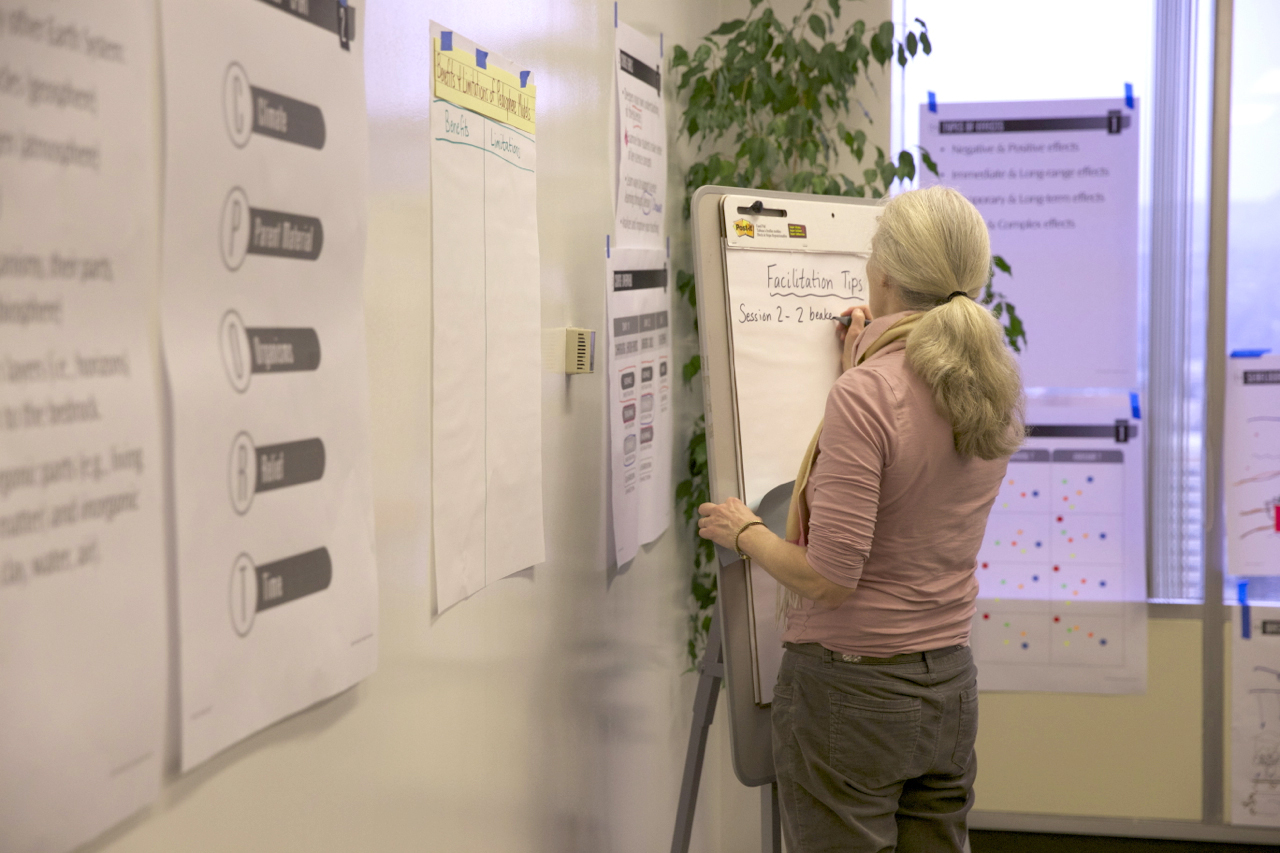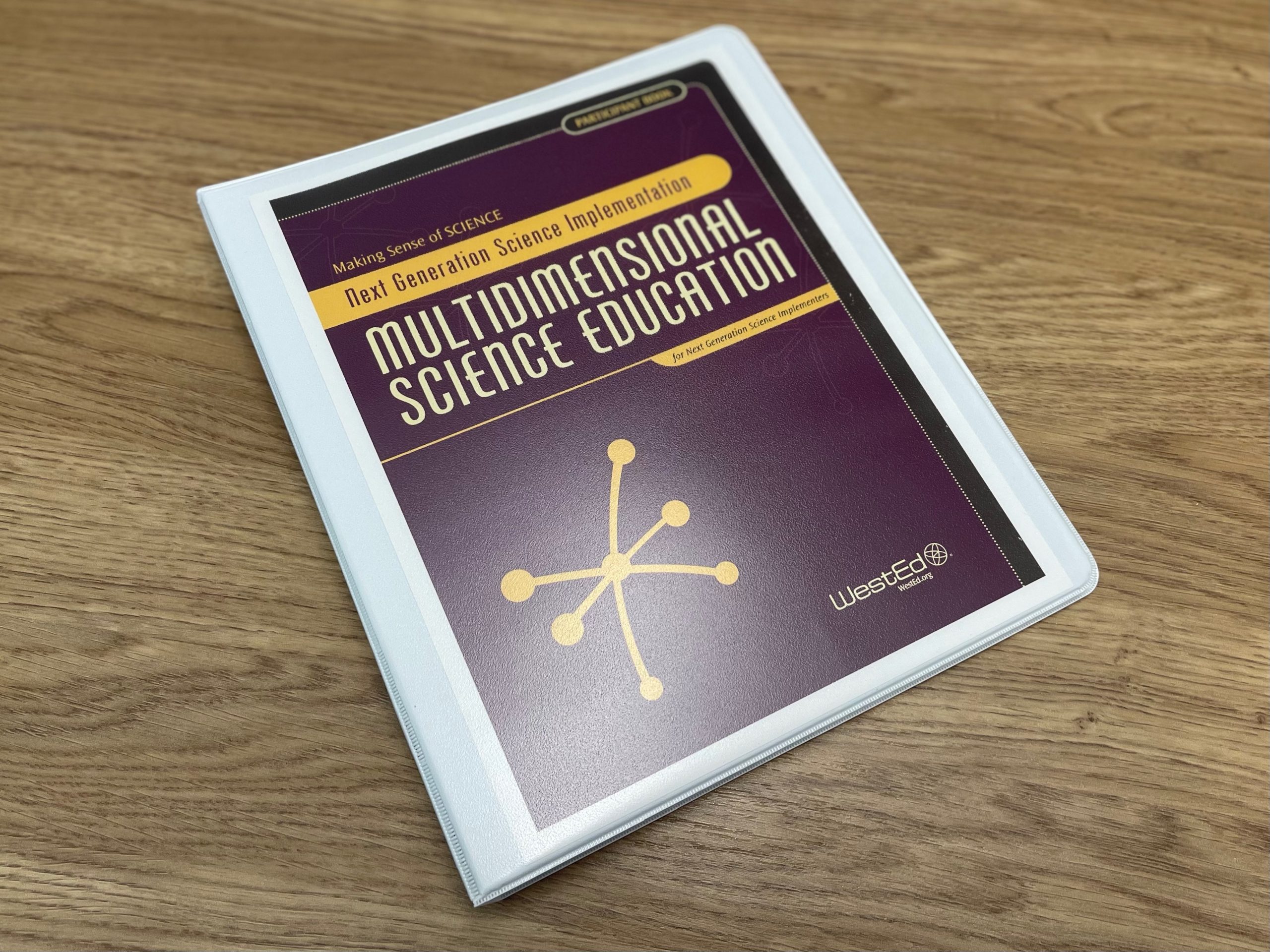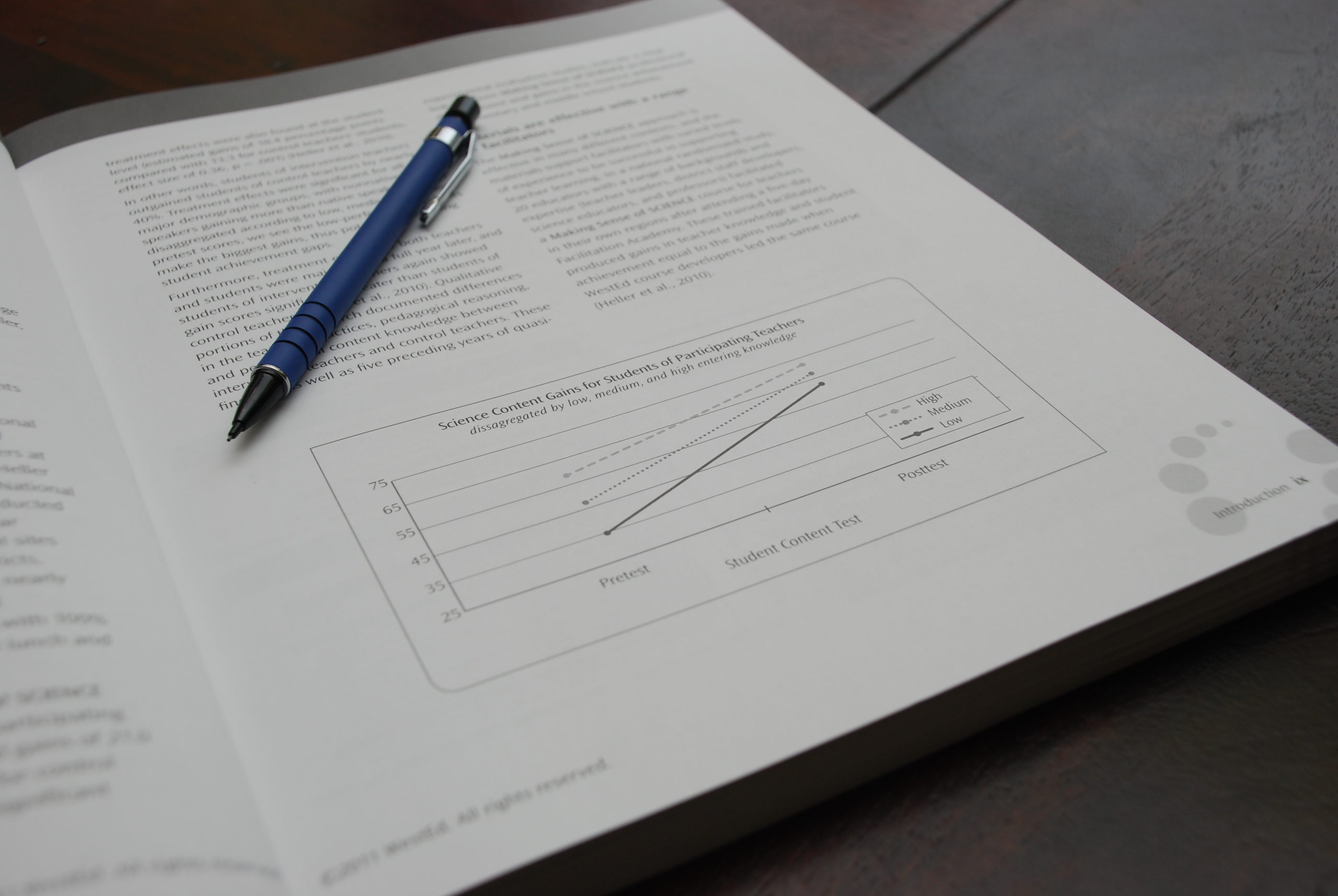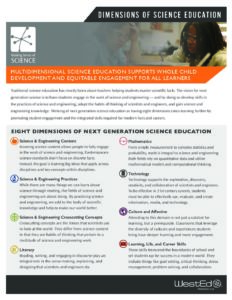Deep learning does not occur in a vacuum and rarely, if ever, is it limited to a single subject. Rather, the best learning experiences encapsulate whole learners and connect to their knowledge, behaviors, and beliefs.
A deep dive into an eight dimension framework at the foundation of all MSS professional learning and student materials. This course supports teachers in understanding how to integrate science and engineering disciplinary core ideas, practices, and crosscutting concepts with literacy, math, technology, 21st-century skills — all while attending to the critically important culture and affective dimension of teaching and learning.
Attending to the culture and affective dimension of learning is not just a nice to do. It is a prerequisite for humans of all ages to engage in meaningful learning.
Jennifer Folsom
MSS Lead Learning Architect
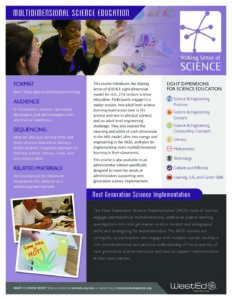
- Audience: For teachers of K–12 next generation science
- Time: In-person | 2 full days
Wondering how sites like yours have implemented this course?
Shifting to Next Generation Science across New Mexico
- NM professional learning providers (PLPs) attended a Facilitation Academy for the NGSI: Multidimensional Science Education course
- NM PLPs led NGSI: Multidimensional Science Education course statewide for K–12 teachers on weekends during the school year
- Teachers then attended the NGSI: Science & Engineering Practices course and the NGSI: Crosscutting Concepts course in the summer
- All NM teachers were provided access to the NGSI: Classroom Innovations PLC protocol and all three Innovation Packs
- MSS Teacher Surveys & Assessments were administered, and reports for each course were created
Next Generation at High School project
- High school administrators participated in the NGSI: Supporting Science Instruction course
- All math, science, literacy, and technology teachers at a single high school participated in the NGSI: Multidimensional Science Education course
- All teachers used the Making Sense of Student Work protocol to support their department PLC meetings
- Science teachers participated in the NGSI: Science & Engineering Practices course and the NGSI: Crosscutting Concepts course
- Science teachers used the Supplemental Student Units
Ready to bring our Multidimensional Science Education course to your district?
Our speciality is customizing professional learning pathways to meet the needs of our partners.
Partner with Us